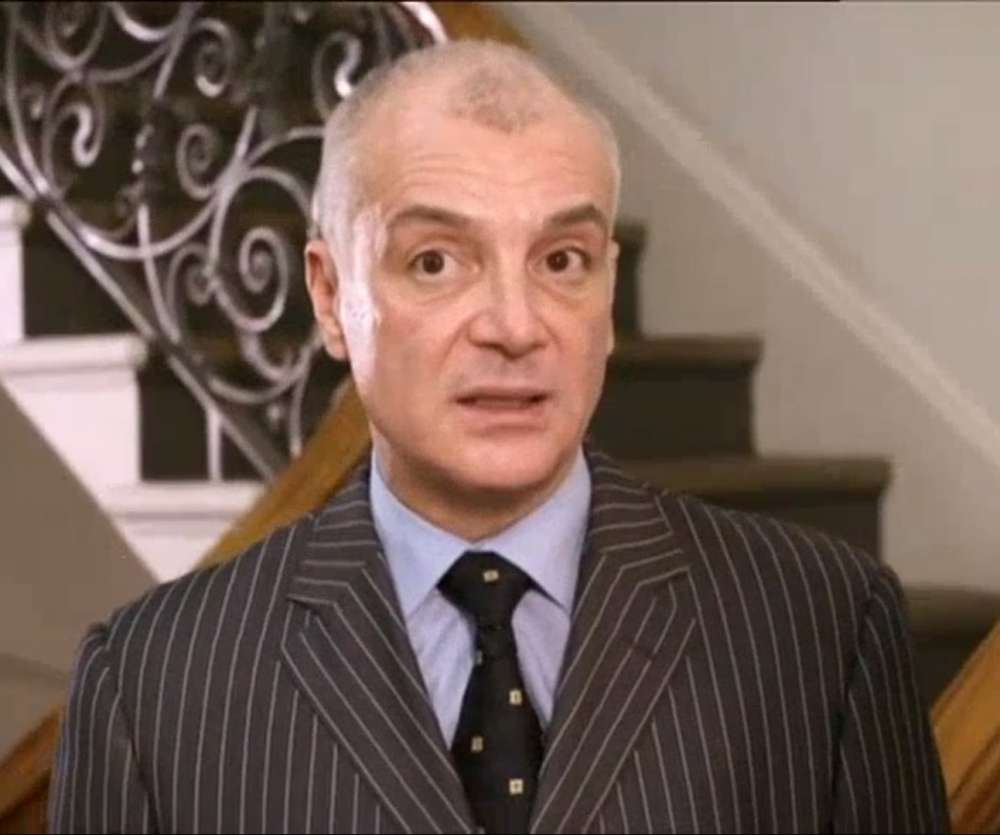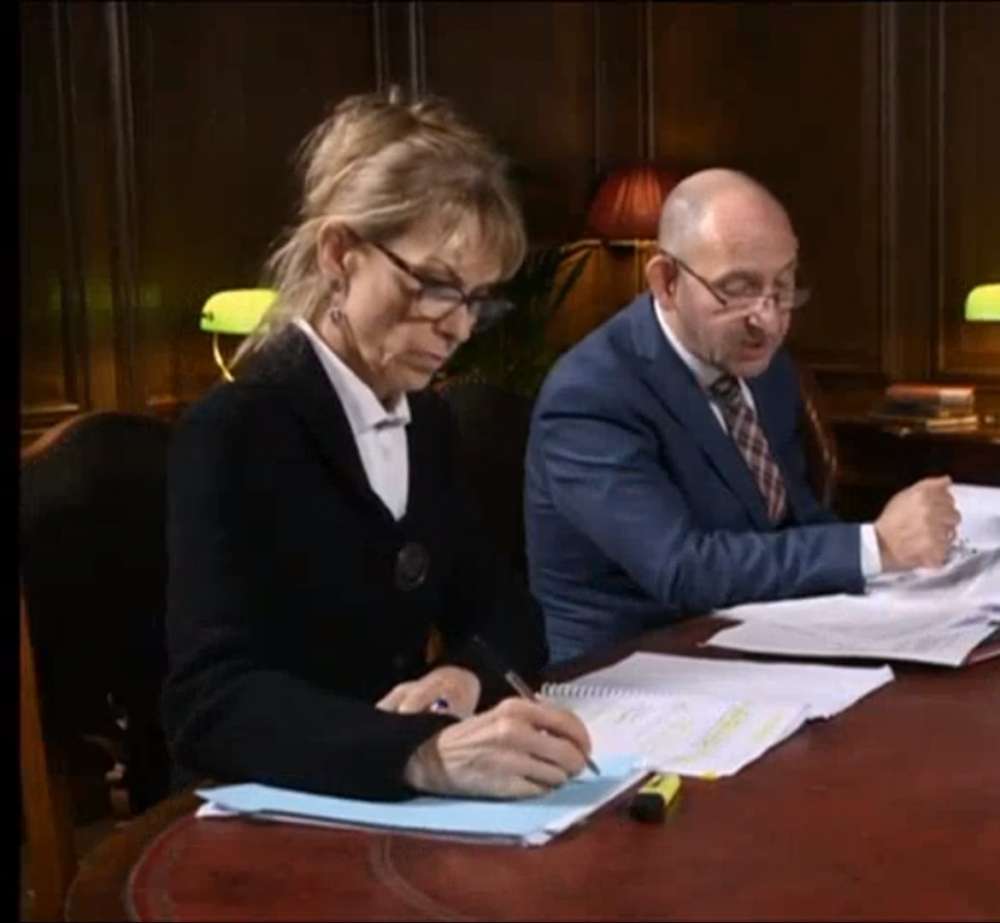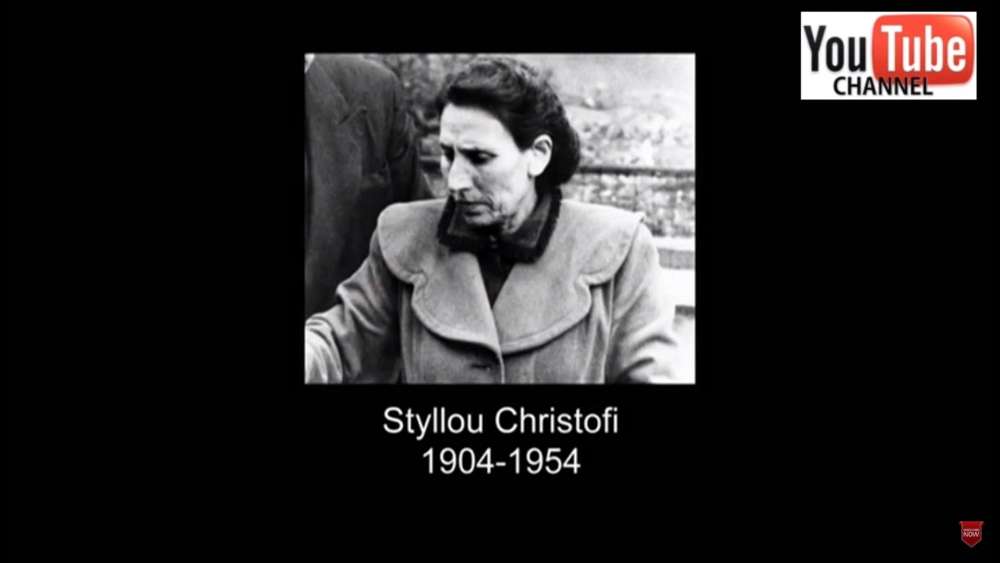On Tuesday, BBC’s “Murder, Mystery and My Family” revisited the story of Styllou Christofi, the penultimate woman to be executed in Britain.
Christofi was arrested and executed in 1954 for strangling her daughter-in-law to death with a scarf, and setting her body on fire by pouring paraffin over it.
Fifty six years on, her grandson Tobias Christofi is desperate to clear the family’s name.
“I have always believed that Styllou, my grandmother was a victim of a miscarriage of justice,” he says in the programme.
Along with barristers Sasha Wass and Jeremy Dein, Tobias explores conflicting witness accounts and review Styllou’s trial.

The case against Styllou was a contentious one, dominated by her mental state and her inability to understand English, that may have seen her wrongly convicted of murder, Dein says.
Acting as Styllou’s defence lawyer, Jeremy argued that Styllou could barely speak English with very significant mental complications.
Also, Styllou’s son, Stavros and husband of the woman she murdered was the one who acted as her interpreter in court. “Police insisted on using Stavros Christofi as an interpreter,” he argues.
During the programme, the legal team of Sasha Wass and Jeremy Dein met with Greek socio-linguist Petros Karatsareas of the University of Westminster to explain how Styllou’s inability to understand English might have deprived her of the opportunity to mount a proper defence.
“The variety of Cypriot Greek they would have spoken did not have the full range of legal, medical, psychological vocabulary to express those notions in the accuracy that was required,” Karatsareas argues.
He notes that a lot of the different things that today we call aspects of mental health would all have been under the label “crazy”.
“Styllou did not want to be labelled as crazy,” Karatsareas says.
The verdict
The legal team of Wass and Dein brought these arguments before judge David Radford who was responsible for re-examining the case.
After his investigation, Radford found that Styllou was granted two independent Greek interpreters in 1954, “one of them, at least, specified that he was Cypriot.”
“That is insufficient in my view to lead me to conclude that those representing Ms. Christofi did not obtain reliable instructions from their client,” Radford said.
On the matter of her mental state, Radford found that three medical experts tended to Christofi while she was in Holloway prison, assisted by an interpreter, after the request of her personal counsellor, and found her not to be insane.
“I have considerable sympathy for those submissions and those are my judgements on the matter. The verdict is safe,” Radford said.
The judge said that he is not prepared to declare the conviction for murder is unsafe but he has strong concerns as to the sentence passed, effectively saying that Styllou should not have been hanged.

UK residents can watch the full episode here.
The background to the story
In 1941, after having saved up enough money, her son Stavros moved to Britain, settled in London, and found a job as a wine waiter at Café de Paris, a prestigious nightclub on London’s West End. He married Hella Bleicher, a German-born fashion model, and the couple had three children.
In 1953, Christofi came to London to reunite with Stavros, whom she had not seen for twelve years.
She had trouble adapting to her new lifestyle, and began extensively arguing with her daughter-in-law. In particular, Christofi resented the fact that her grandchildren were being raised as typical English children with no regard for their Greek heritage. She would frequently criticise Hella’s parenting and fly into tantrums.
In July 1954, Stavros and Hella agreed that Christofi needed to leave. Hella planned to take the children on a visit to Germany, during which Stavros would try to persuade his mother to return to Cyprus. Christofi, who probably became aware of the plan, soon resolved to murder Hella so she could raise the children her own way, Parkiaki reports.
On the evening of July 29, 1954, after Stavros had left for work and the children had been put to bed, Christofi went to the kitchen, where Hella was going about her chores, and knocked her unconscious with a blow to the back of the head with an ash pan from the boiler.
She then strangled Hella to death with a scarf, removed the wedding ring from her finger, dragged the body into the back garden and attempted to cremate it by pouring paraffin over it and setting it on fire. The flames caught the attention of next-door neighbour John Young, who was passing by the house walking his dog. He saw Christofi burning Hella’s body over the fence. However, he believed that the article being burnt was a mannequin, and seeing that Christofi was attending to the fire, believed there was no cause for alarm.
The fire soon got out of control, and Christofi, who spoke little English, ran into the street to raise the alarm. She eventually found help from a couple in a car parked outside a railway station, to whom she explained “Please come. Fire burning. Children sleeping”. When they arrived, they called the fire brigade, who summoned the police after finding Hella’s body in the garden.
Police opened an investigation, and found incriminating evidence against Christofi. Hella’s body was found to show signs of strangulation, and hastily cleaned bloodstains and paraffin-soaked rags and newspapers were discovered on the kitchen floor. Furthermore, John Young, the neighbour who had witnessed Christofi setting the fire over what he had believed was a mannequin, soon came forward and told police what he had seen. Hella’s wedding ring was also found to have been removed: it was later found in Christofi’s bedroom, and Christofi could offer no reasonable explanation.
Christofi was charged and remanded to HM Prison Holloway soon afterwards. Her trial began at the Old Bailey on October 28, 1954.
Her counsel offered a defence of insanity but the jury rejected it. Christofi was found guilty and sentenced to death. There was a limited campaign for clemency, but to no avail. Her executioner, Albert Pierrepoint claimed in his autobiography, Executioner: Pierrepoint, that Christofi failed to attract much media attention or sympathy because, unlike the pretty Ruth Ellis, she was less glamorous.
Christofi was hanged at Holloway Prison by Albert Pierrepoint on December 15,1954.
Read more:
https://in-cyprus.com/bbc-revisits-story-of-greek-cypriot-woman-hanged-for-murder-in-uk/






